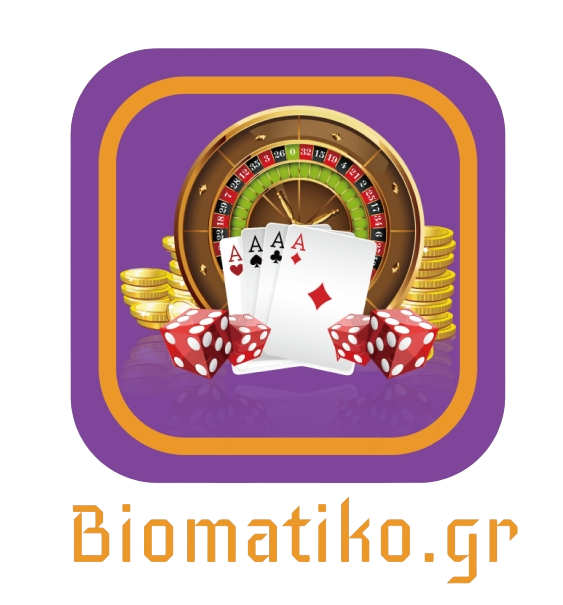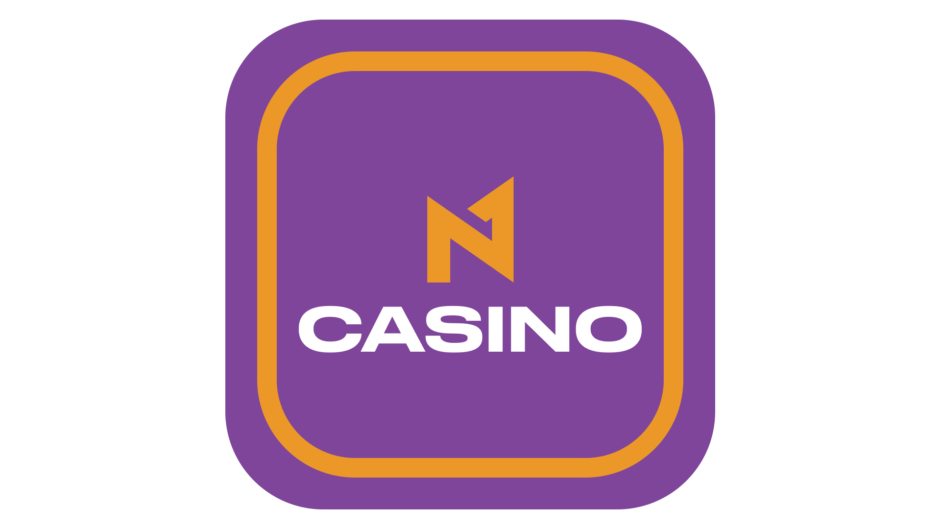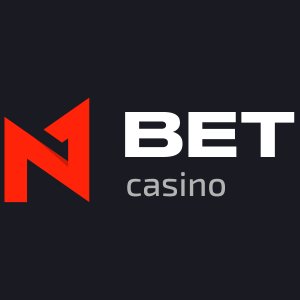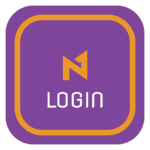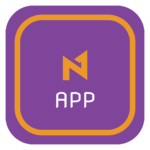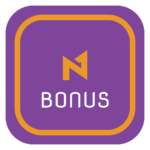Θέλετε να δοκιμάσετε τις δυνάμεις σας σε ένα νέο αλλά γενναιόδωρο online καζίνο; Τότε θα πρέπει οπωσδήποτε να επισκεφθείτε την ιστοσελίδα του N1 Casino. Πρόκειται για ένα αδειοδοτημένο καζίνο με ένα εντυπωσιακή συλλογή τυχερών παιχνιδιών. Η πλατφόρμα τυχερών παιχνιδιών ξεκίνησε τις εργασίες της το 2017, αλλά έχει ήδη καταφέρει να παρουσιάσει μεγάλα τζάκποτ σε χιλιάδες παίκτες. Ο ιστότοπος χρησιμοποιεί λογισμικό από γνωστούς παγκόσμιους παρόχους και προσφέρει τακτικές εκδηλώσεις. Το σύστημα μπόνους και το πρόγραμμα επιβράβευσης κάνουν το παιχνίδι πιο ενδιαφέρον και κερδοφόρο. Η κύρια ιδέα του καζίνο είναι το δίκαιο παιχνίδι προς τους παίκτες και οι γρήγορες πληρωμές, ενώ προσφέρει αποκλειστικά μπόνους καλωσορίσματος στις 3 πρώτες σας καταθέσεις. Ο σχεδιασμός του καζίνο εντυπωσιάζει με την απλότητά του με την πρώτη ματιά, έχει όλα όσα σας επιτρέπουν να έχετε εύκολη και γρήγορη πρόσβαση σε όλα τα τμήματα που θέλετε να χρησιμοποιήσετε. Επιπλέον, για τους παίκτες που προτιμούν τα smartphones, το N1 Casino είναι πλήρως συμβατό με τα κινητά και προσφέρει στους παίκτες την ίδια εξαιρετική εμπειρία με την πλήρη έκδοση. Μην χάνετε το χρόνο σας και ξεκινήστε το παιχνίδι σας σήμερα!
Μπόνους N1 Casino
Αυτό το καζίνο προσφέρει μια πολύ γενναιόδωρη προσφορά καλωσορίσματος για να προσελκύσει νέους παίκτες, η οποία αποτελείται από 3 διαφορετικά στάδια για να επωφεληθείτε από αυτήν. Θα βρείτε επίσης συναρπαστικά μπόνους επαναφόρτωσης που είναι διαθέσιμα στους τακτικούς παίκτες. Λεπτομερείς πληροφορίες σχετικά με τον τρόπο λειτουργίας αυτών των μπόνους θα βρείτε παρακάτω.
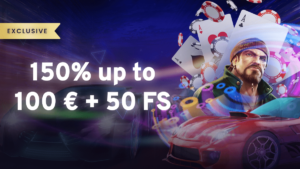 Εγγραφείτε σήμερα στο N1 Casino και μπορείτε να κερδίσετε ένα γενναιόδωρο μπόνους καλωσορίσματος 3 δόσεων. Αυτή η προσφορά καλωσορίσματος ενεργοποιείται με την πραγματοποίηση 3 ξεχωριστών καταθέσεων στο λογαριασμό, δηλαδή για κάθε προσθήκη λογαριασμού στο πλαίσιο αυτής της προσφοράς θα λάβετε ένα αντίστοιχο μπόνους. Ποιες είναι οι προϋποθέσεις για να λάβετε αυτό το μπόνους; Μόλις ο παίκτης καταθέσει το ελάχιστο απαιτούμενο ποσό, το καζίνο θα καθορίσει το ποσό του επιλέξιμου μπόνους.
Εγγραφείτε σήμερα στο N1 Casino και μπορείτε να κερδίσετε ένα γενναιόδωρο μπόνους καλωσορίσματος 3 δόσεων. Αυτή η προσφορά καλωσορίσματος ενεργοποιείται με την πραγματοποίηση 3 ξεχωριστών καταθέσεων στο λογαριασμό, δηλαδή για κάθε προσθήκη λογαριασμού στο πλαίσιο αυτής της προσφοράς θα λάβετε ένα αντίστοιχο μπόνους. Ποιες είναι οι προϋποθέσεις για να λάβετε αυτό το μπόνους; Μόλις ο παίκτης καταθέσει το ελάχιστο απαιτούμενο ποσό, το καζίνο θα καθορίσει το ποσό του επιλέξιμου μπόνους.
- 1η κατάθεση = 150% μέχρι € 100 + 50 δωρεάν περιστροφές
- 2η κατάθεση = 50% μέχρι € 100 + 50 δωρεάν περιστροφές
- 3η κατάθεση = 100% μέχρι € 100 + 40 δωρεάν περιστροφές
Το καζίνο δίνει επίσης και άλλα μπόνους, για παράδειγμα τις Δευτέρες και τις Παρασκευές.
- Εάν εισάγετε τον κωδικό ‘RALLY21’ τη Δευτέρα, μπορείτε να λάβετε ένα μπόνους 25% έως και € 100 και 30 δωρεάν περιστροφές.
- Εάν εισάγετε τον κωδικό ‘ROUTE75’ την Παρασκευή, μπορείτε να λάβετε ένα μπόνους 50% έως και € 100 και 75 δωρεάν περιστροφές.
Μάθετε επίσης για τα μπόνους από την Efbet – το καλύτερο διαδικτυακό καζίνο για Έλληνες παίκτες.
VIP Club
Για τους παίκτες που θέλουν να επωφεληθούν πλήρως από το N1 Casino, έχει αναπτυχθεί ένα ειδικό πρόγραμμα VIP. Πρόκειται για ένα πολύ ασυνήθιστο πρόγραμμα VIP που συνδυάζει ένα σύστημα ανταμοιβής με στοιχεία του παιχνιδιού. Με την ένταξή τους στο πρόγραμμα VIP, οι παίκτες αποκτούν πρόσβαση στο πρόγραμμα επιπέδων, το οποίο τους επιτρέπει να λαμβάνουν αποκλειστικές ανταμοιβές. Όσο περισσότερα μπόνους παίζετε σε κουλοχέρηδες, τόσο περισσότερες ανταμοιβές παίρνετε. Τόσο οι δωρεάν περιστροφές όσο και τα χρήματα μπόνους προσφέρονται ως ανταμοιβές, τις οποίες μπορείτε να χρησιμοποιήσετε σε έναν συγκεκριμένο κουλοχέρη.
Μέθοδοι πληρωμής του N1 Casino
Το N1 Casino δέχεται παίκτες από όλο τον κόσμο. Η συμμετοχή τόσων παικτών από όλα τα σημεία του κόσμου, υποχρεώνει το καζίνο να φροντίσει ιδιαίτερα για το θέμα των συναλλαγών. Ευτυχώς, αυτό το online καζίνο υποστηρίζει ένα ευρύ φάσμα διαφορετικών μεθόδων πληρωμής, οι περισσότερες από τις οποίες είναι δωρεάν και άμεσες. Οι ακόλουθες μέθοδοι κατάθεσης είναι διαθέσιμες: MasterCard, Visa, Trustly, PaysafeCard, Skrill, Neteller, iDeal, Sofort, iDebit, Instadebit, Rapid, Ecopayz και Zimpler.
Η ανάληψη στο N1 Casino είναι επίσης πολύ εύκολη και γρήγορη. Οι ακόλουθες μέθοδοι ανάληψης είναι διαθέσιμες: MasterCard, Visa, Trustly, PaysafeCard, Skrill, Neteller, τραπεζική μεταφορά, Ecopayz και Qiwi. Το N1 Casino δεσμεύεται να παρέχει στους παίκτες γρήγορες αναλήψεις. Έτσι, εάν η ανάληψη χρημάτων στην κάρτα διαρκεί έως και 3 ημέρες και το τραπεζικό έμβασμα – έως και 5 ημέρες, τότε η μεταφορά μέσω άλλης μεθόδου θα γίνει αμέσως. Το ελάχιστο ποσό που μπορεί να ζητηθεί είναι 20 ευρώ και το μέγιστο περιορίζεται σε 4.000 ευρώ.
N1 παιχνίδια καζίνο
Το N1 Casino προσφέρει μια εξαιρετική επιλογή διαφορετικών παιχνιδιών. Υπάρχουν πάνω από 2000 παιχνίδια στο καζίνο, μεταξύ των οποίων κάθε παίκτης θα βρει το επιθυμητό παιχνίδι για τον εαυτό του. Στην συλλογή του N1 Casino δεν παρουσιάζονται μόνο οι κουλοχέρηδες, αλλά και τα επιτραπέζια παιχνίδια, καθώς και το ζωντανό καζίνο. Συνολικά, εδώ παρουσιάζονται παιχνίδια από περίπου 26 παρόχους, συμπεριλαμβανομένων των NetEnt, Playtech, Play ‘n Go, Evolution Gaming, Yggdrasil και Relax Gaming. Το κύριο μενού διαθέτει άνετα εγχειρίδια πλοήγησης, επιτρέποντάς σας να βρείτε το παιχνίδι με λίγα μόνο κλικ. Επιπλέον, ο ιστότοπος διαθέτει λειτουργία γρήγορης αναζήτησης με βάσει την ονομασία του παιχνιδιού. Παίξτε το αγαπημένο σας παιχνίδι, αλλά δοκιμάστε και νέα και σίγουρα θα περάσετε υπέροχα σε αυτό το online καζίνο.
Τουρνουά
Το N1 Casino διαθέτει ένα ολόκληρο τμήμα αφιερωμένο στα τρέχοντα τουρνουά στα οποία μπορούν να παίξουν οι παίκτες. Οι υπάρχοντες πίνακες αποτελεσμάτων είναι διαθέσιμοι για να δείξουν τη θέση σας στους άλλους παίκτες. Τα τουρνουά περιλαμβάνουν ποικιλία παιχνιδιών. Τα καλά νέα είναι ότι υπάρχουν δωρεάν τουρνουά, ώστε να εξασκηθείτε λίγο πριν μπείτε στο παιχνίδι με πραγματικά χρήματα. Σε όποιο τουρνουά και αν συμμετέχετε, όλοι οι συμμετέχοντες έχουν τις ίδιες πιθανότητες να παίξουν και να κερδίσουν. Πριν συμμετάσχετε σε οποιοδήποτε τουρνουά, ειδικά στο πόκερ, θα πρέπει να διαβάσετε όλους τους κανόνες, καθώς μπορεί να διαφέρουν από το ένα στο άλλο. Τα τουρνουά πόκερ είναι τα αγαπημένα των επαγγελματιών που θέλουν να παίξουν μεγάλα ποσά και να κερδίσουν. Η ομορφιά αυτών των τουρνουά δεν είναι μόνο ότι μπορείτε να κερδίσετε στο παιχνίδι, αλλά και ότι υπάρχουν ειδικά βραβεία για τον νικητή. Αυτό είναι ένα τμήμα του N1 Casino που πολλοί θα αγαπήσουν.
Online κουλοχέρηδες στο N1 Casino
Μια ευρεία επιλογή κουλοχέρηδων υψηλής ποιότητας που θα ενθουσιάσει ακόμη και τους έμπειρους παίκτες είναι το κλειδί για την επίτευξη της υπεροχής μεταξύ των online καζίνο. Το N1 Casino θα ικανοποιήσει τις ανάγκες τόσο των οπαδών των κλασικών κουλοχέρηδων 3 τροχών όσο και των οπαδών των τελευταίων 3D video slots. Ένα άλλο σπουδαίο χαρακτηριστικό του N1 Casino είναι ότι οι κουλοχέρηδες διατίθενται και σε λειτουργία επίδειξης, επιτρέποντας στους παίκτες να δοκιμάσουν παιχνίδια που δεν γνωρίζουν πριν πληρώσουν τη συμμετοχή. Μερικά από τα κορυφαία φρουτάκια που προσφέρονται σήμερα περιλαμβάνουν τα Legacy of the Dead, Reactoonz, Great Rhino Megaways, Wolf Gold και Money Train.
Επιτραπέζια παιχνίδια στο N1 Casino
Ενώ οι περισσότεροι επισκέπτες έρχονται στα online καζίνο για να γυρίσουν τους τροχούς των video slots, το N1 Casino δεν ξεχνάει τους πελάτες που προτιμούν τα κλασικά τυχερά παιχνίδια. Έτσι, υπάρχουν περίπου διακόσιες επιλογές με επιτραπέζια παιχνίδια, όπως το blackjack, το μπακαρά, καθώς και όλα τα είδη της ρουλέτας και επιλογών πόκερ από διαφορετικούς παρόχους. Αυτό το λόμπι προσφέρει επίσης επιτραπέζια παιχνίδια με live dealer. Οι παίκτες μπορούν να δουν ποια παιχνίδια έχουν live ντίλερ, απλά κοιτάζοντας τα εικονίδια του παιχνιδιού. Τα περισσότερα παιχνίδια live θα εμφανίζουν είτε το εικονίδιο “Live” είτε το εικονίδιο του ντίλερ. Οι παίκτες καλούνται να περάσουν χρόνο στο American Blackjack, το Baccarat, την εικονική ρουλέτα, το Joker Poker, το Mahjong Exchange, το Baccarat Gold και άλλα. Μπορείτε να στοιχηματίσετε με εθνικά ή ψηφιακά νομίσματα.
Και αν θέλετε να επεκτείνετε την εμπειρία παιχνιδιού σας, ρίξτε μια ματιά στο Sportuna Casino, όπου σας περιμένει μια μεγάλη ποικιλία από συναρπαστικά παιχνίδια και η ευκαιρία να κερδίσετε μεγάλα βραβεία.
Λογισμικό στο N1 Casino
Το N1 Casino διαθέτει πάνω από 2000 παιχνίδια από κορυφαίους παρόχους λογισμικού στον κλάδο. Το καζίνο ενδιαφέρεται όχι μόνο για την επιλογή των παιχνιδιών που προσφέρονται στο χαρτοφυλάκιο, αλλά και για την ποιότητά τους, γι’ αυτό και στο N1 Casino θα βρείτε μόνο παιχνίδια από τους καλύτερους παρόχους λογισμικού. Το τμήμα των κουλοχέρηδων παρουσιάζει παιχνίδια από γνωστούς παρόχους όπως οι 1×2 Gaming, EGT, Belatra, BGAMING, Big Time Gaming, Booming Games, Betsoft, Amatic, ELK Studios, Endorphina, Ezugi, GameArt, Habanero Gaming, iSoftBet, NetEnt, Platipus, Pragmatic Play, Microgaming και Yggdrasil. Το καζίνο πιστεύει ότι είναι σημαντικό να έχει τα υψηλότερης ποιότητας παιχνίδια, συμπεριλαμβανομένων συναρπαστικών προοδευτικών παιχνιδιών τζάκποτ, γι’ αυτό και συνεργάζεται με τόσο καλούς παρόχους.
Ζωντανά παιχνίδια στο N1 Casino
Η κατάδυση στον κόσμο των ζωντανών καζίνο μπορεί να δώσει στον καθένα την αίσθηση ενός πραγματικού καζίνο στο Βέγκας. Με τα ζωντανά παιχνίδια του, το N1Casino αποδεικνύει ότι τα online καζίνο μπορούν να είναι συναρπαστικά τόσο για τους επαγγελματίες όσο και για τους αρχάριους παίκτες. Έχετε την ευκαιρία να παίξετε με πραγματικούς αντιπροσώπους, να συνομιλήσετε μαζί τους και να παρακολουθήσετε την εξέλιξη του παιχνιδιού. Ο κατάλογος των παρόχων ζωντανών παιχνιδιών είναι και πάλι πολύ εντυπωσιακός. Σε αυτό το τμήμα του ιστότοπου θα βρείτε ζωντανά παιχνίδια από την Evolution, την Authentic gaming, την Playson, την Netent και πολλούς άλλους. Τα κύρια παιχνίδια που μπορούμε να περιμένουμε από το N1 είναι το Live Blackjack, το Live Baccarat και η Live Ρουλέτα, με πολλές παραλλαγές του κάθε παιχνιδιού για να διαλέξετε. Αυτά τα καζίνο λειτουργούν 24 ώρες το 24ωρο και οι live ντίλερ διαχειρίζονται τα παιχνίδια. Ένα άλλο ελκυστικό χαρακτηριστικό του N1 live casino είναι η δυνατότητα των παικτών να παίζουν ταυτόχρονα σε περισσότερα από ένα τραπέζια. Δοκιμάστε να παίξετε live καζίνο από το σπίτι και θα εντυπωσιαστείτε. Πολλοί παίκτες αντιδρούν πολύ καλά όταν το καζίνο έχει ζωντανά παιχνίδια.
N1 Κινητό Καζίνο
Περισσότεροι παίκτες επιλέγουν να παίζουν από τις κινητές συσκευές τους από ποτέ άλλοτε. Όλα τα προοδευτικά online καζίνο προσφέρουν τη δυνατότητα να παίξετε από το κινητό σας. Αυτός είναι ο λόγος για τον οποίο το N1 Casino είναι διαθέσιμο σε Android και IOS. Απλά μεταβείτε στον επίσημο ιστότοπο μέσω του προγράμματος περιήγησής σας. Όλα τα παιχνίδια αναπαράγονται με την ίδια ποιότητα στην οθόνη του κινητού σας. Ο παίκτης μπορεί να εκτελέσει τις ίδιες λειτουργίες όπως από τον υπολογιστή. Στην κινητή έκδοση του N1 Casino μπορείτε να παίξετε με μετρητά και δωρεάν, να συμμετάσχετε σε εκδηλώσεις, να ανανεώσετε το υπόλοιπο του λογαριασμού και να αποσύρετε χρήματα, να συσσωρεύσετε και να στοιχηματίσετε μπόνους είναι δυνατή χωρίς πρόσθετη εγγραφή. Εφόσον οι παίκτες έχουν σταθερή σύνδεση στο διαδίκτυο, μπορούν εύκολα να έχουν πρόσβαση στον ιστότοπο και να συνδεθούν στους λογαριασμούς τους από οποιαδήποτε συσκευή. Ομοίως, οι νέοι παίκτες μπορούν να κάνουν και την εγγραφή, ανοίγοντας απλά το κινητό τους. Στοιχηματίστε εν κινήσει, όποτε θέλετε.
Εξυπηρέτηση πελατών στο N1 Casino
Το να παίζετε σε ένα από τα καλυτερα online casino σημαίνει ότι υπάρχει πάντα ένας αξιόπιστος εκπρόσωπος υποστήριξης διαθέσιμος για να επικοινωνήσετε μαζί του. Η υποστήριξη πελατών του N1 Casino είναι διαθέσιμη 24 ώρες την ημέρα, 7 ημέρες την εβδομάδα. Είναι διαθέσιμοι μέσω συνομιλίας και ηλεκτρονικού ταχυδρομείου. Η ομορφιά του N1 Casino είναι το πόσο προσιτή είναι η υποστήριξη ζωντανής συνομιλίας. Δεν έχει σημασία αν ο παίκτης έχει μια ερώτηση σχετικά με τις συναλλαγές, τεχνικά ζητήματα, η ομάδα υποστήριξης δεν θα σας αφήσει με άλυτες απορίες.
Ασφάλεια στο N1 Casino
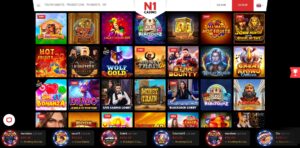 Το N1 Casino είναι ένα νόμιμο online καζίνο που λειτουργεί από την N1 Interactive Ltd, μια αξιόπιστη εταιρεία με πολυετή εμπειρία στον κλάδο των online τυχερών παιχνιδιών. Η N1 Interactive λειτουργεί σήμερα περίπου 20 διαδικτυακά καζίνο, γεγονός που λέει πολλά για την εμπειρία της. Το N1 Casino χρησιμοποιεί τις πιο προηγμένες τεχνολογίες για να εξασφαλίσει το υψηλό επίπεδο προστασίας των δεδομένων. Αυτό περιλαμβάνει κρυπτογράφηση Secure Socket Layer (SSL) 128 bit και τεχνολογία πρωτοκόλλου PGP. Το 2018, το N1 Casino έλαβε την άδεια MGA/B2C/394/2017 από την Αρχή Τυχερών Παιχνιδιών της Μάλτας. Σήμερα, με τόσα πολλά διαφορετικά καζίνο να εμφανίζονται στις μηχανές αναζήτησης, οι παίκτες θέλουν να γνωρίζουν ποια από αυτά είναι ρυθμισμένα και αδειοδοτημένα. Και δεδομένου ότι αυτό το καζίνο τα έχει όλα, μπορείτε να εμπιστευτείτε το N1 Casino.
Το N1 Casino είναι ένα νόμιμο online καζίνο που λειτουργεί από την N1 Interactive Ltd, μια αξιόπιστη εταιρεία με πολυετή εμπειρία στον κλάδο των online τυχερών παιχνιδιών. Η N1 Interactive λειτουργεί σήμερα περίπου 20 διαδικτυακά καζίνο, γεγονός που λέει πολλά για την εμπειρία της. Το N1 Casino χρησιμοποιεί τις πιο προηγμένες τεχνολογίες για να εξασφαλίσει το υψηλό επίπεδο προστασίας των δεδομένων. Αυτό περιλαμβάνει κρυπτογράφηση Secure Socket Layer (SSL) 128 bit και τεχνολογία πρωτοκόλλου PGP. Το 2018, το N1 Casino έλαβε την άδεια MGA/B2C/394/2017 από την Αρχή Τυχερών Παιχνιδιών της Μάλτας. Σήμερα, με τόσα πολλά διαφορετικά καζίνο να εμφανίζονται στις μηχανές αναζήτησης, οι παίκτες θέλουν να γνωρίζουν ποια από αυτά είναι ρυθμισμένα και αδειοδοτημένα. Και δεδομένου ότι αυτό το καζίνο τα έχει όλα, μπορείτε να εμπιστευτείτε το N1 Casino.
N1 Casino γενικά
Το N1 Casino είναι το ιδανικό μέρος για online τυχερά παιχνίδια για να στοιχηματίσετε, προσφέροντας μια μεγάλη ποικιλία σε ένα ασφαλές περιβάλλον. Η διεπαφή είναι φιλική προς το χρήστη και η ασφάλεια των δεδομένων συμμορφώνεται με όλους τους κανόνες. Τα μπόνους καλωσορίσματος και τα εβδομαδιαία τουρνουά είναι ξεχωριστά αξιοθέατα που αξίζουν να επισκεφθείτε αυτήν την πλατφόρμα. Επιπλέον, το καζίνο προσφέρει μερικές από τις πιο αξιόπιστες μεθόδους πληρωμής για online συναλλαγές και διασφαλίζει ότι όλες οι συναλλαγές είναι ασφαλείς και αξιόπιστες. Είναι πάντα σημαντικό να υπάρχει καλή διαθεσιμότητα εξυπηρέτησης πελατών και το N1 Casino δεν απογοητεύει από αυτή την άποψη. Η προσφορά δωρεάν παιχνιδιών και τουρνουά δίνει στους νέους παίκτες μια ιδέα για το τι να περιμένουν. Δεν υπάρχει καλύτερη στιγμή για να ενταχθείτε στην ομάδα του N1 από τώρα, με ένα μπόνους καλωσορίσματος που θα σας παρασύρει στον κόσμο των τυχερών παιχνιδών. Θα μπορούσαμε να μιλήσουμε πολύ για αυτό το καζίνο, αλλά είναι καλύτερα να εγγραφείτε και να το δοκιμάσετε μόνοι σας!
